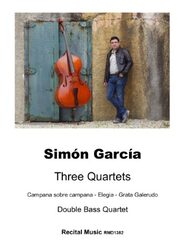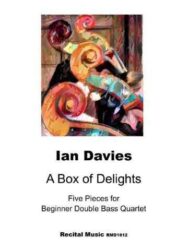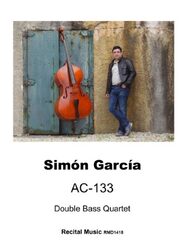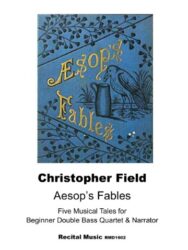A Celtic Suite
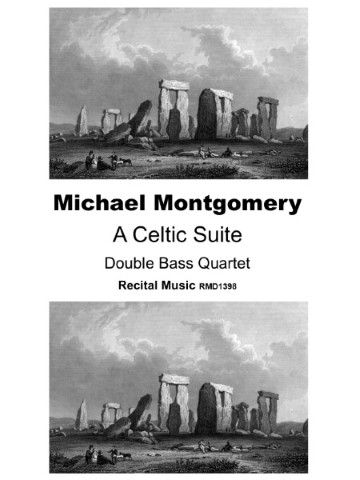
| Product Code: | RMD1398 |
| Publishers Number: | RMD1398 |
| Language: | English |
| Condition: | New |
2. Stonehenge
3. Druids
4. The Barrows
5. Celtic Dance
He now lives in the Ozark Mountains of Arkansas, where he teaches double bass at the University of Arkansas Fayetteville and privately in his home studio. Michael has composed numerous works for young double bassists (including over five dozen short bass quartets for young students) which are published by Recital Music and two American publishers.
His articles about bass performance, literature, and teaching have been published in American Suzuki Journal, Bass World, and Pastoral Music.
A Celtic Suite by Michael Montgomery is a colourful and engaging suite of pieces for the progressing intermediate Double Bass Quartet or ensemble. A wealth…
The Celtic peoples lived throughout much of continental Europe during the Iron Age. They are thought to have migrated to southern Britain sometime between the 12th and 6th century B.C. ‘Dawn in the Glades’ attempts to paint a musical portrait of the arrival of these first tribal groups as they settled in open landscapes that may have first been cleared by Neolithic farmers of ages past.
Whether or not they recognized the handiwork of earlier inhabitants in the forest clearings, the Celts would have certainly appreciated the remarkable resourcefulness of the predecessors who created the monument we today call ‘Stonehenge’. The circle of giant stones, brought to this site nearly 2,000 years before the Celtic immigration, would certainly have left them with the same sense of wonder we still experience today.
With their hooded white robes and oak staffs the Celtic priests, or ‘Druids’, would have recognized the great potential for liturgical movement and procession in the concentric rings of massive stone that were long before set in the middle of a basin on Salisbury Plain. It is said that the Druids more than likely did use Stonehenge as a temple of worship and sacrifice when they moved into the region.
It is known that early Britons, from the late Neolithic time until the end of the Bronze Age (2900-800BC), buried their dead beneath earthen mounds known as ‘Barrows’. Stonehenge itself served not only as a place of religious ceremony, but was also apparently a cemetery – in its immediate area we find two very large long and several hundred smaller barrows.
After Julius Caesar’s invasion of south-eastern Britain, much of the old way of life was lost as the Celtic society here was slowly absorbed into the Roman Empire. We are indeed fortunate that Celtic culture managed to survive to some extent in Ireland, which the Roman armies were not able to conquer. Happily, we in the United States find remnants of old Celtic music brought to our country by Irish immigrants when they settled in the Appalachian and Ozark Mountains. It is hoped that the ‘Celtic Dance’ will reflect our appreciation of this ancient heritage.
[Programme note by Michael Montgomery]Double bassist Michael Montgomery, a student of Robert Rohe (Principal Bass, New Orleans Symphony) and Lucas Drew (Principal Bass, Miami Philharmonic), earned his Doctor of Musical Arts degree in double bass performance from the University of Miami, played full-time in the bass section of the Florida Philharmonic Orchestra for two decades.
He now lives in the Ozark Mountains of Arkansas, where he teaches double bass at the University of Arkansas Fayetteville and privately in his home studio. Michael has composed numerous works for young double bassists (including over five dozen short bass quartets for young students) which are published by Recital Music and two American publishers.
His articles about bass performance, literature, and teaching have been published in American Suzuki Journal, Bass World, and Pastoral Music.
Digital Download – PDF
Shipping costs: No shipping
R.R.P £10.00
Our Price: £8.50
Page ? of ?
You might also like
-
3 Quartets
£8.50 -
A Box of Delights for 4 Double Basses
£6.38 -
AC-133
£7.23 -
Aesop’s Fables
£9.78

